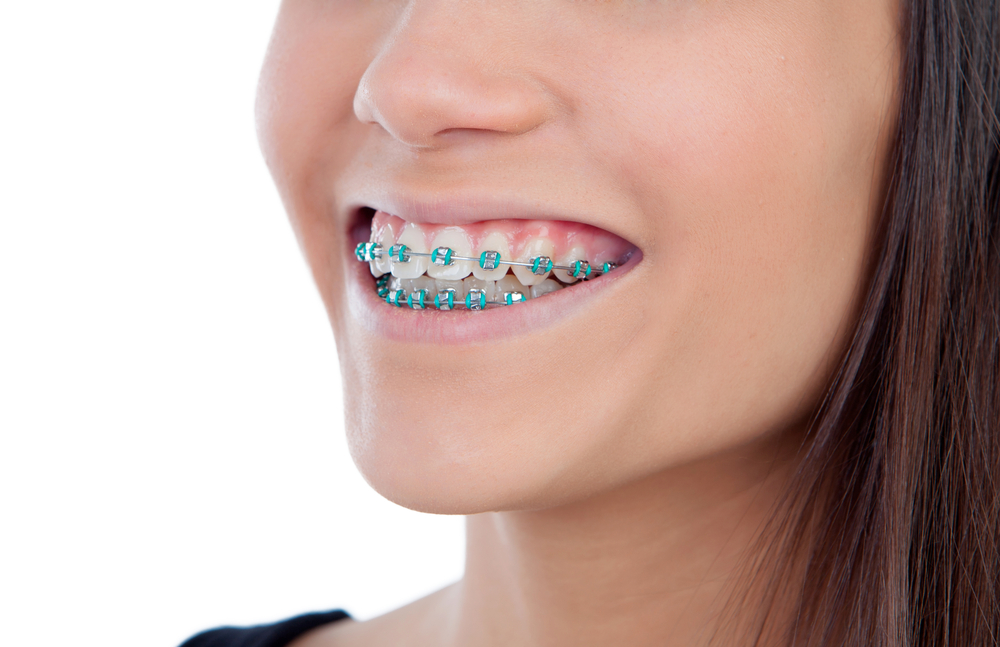
Incorporating a mouth rinse for children can provide an extra level of cavity prevention while strengthening their developing teeth. Mouthwash can also provide an additional benefit for kids with braces since the swishing and rinsing of the liquid can help to loosen food debris that can get stuck in the brackets and wires.
Read on to learn five facts about mouthwash for kids with braces and how to identify if your child is ready.
Mouthwash Isn’t Recommended For Kids Under Six
Mouthwash is not typically recommended for children under the age of six. The reasoning behind this is because most types of mouthwash contain fluoride. While fluoride is great for preventing tooth decay, too much too early can cause fluorosis.
Fluorosis can occur when a child’s teeth are still forming, and the condition causes changes to the color and texture of the teeth. A child with excessive amounts of fluoride can develop white or brown spots on the surface of the teeth, in addition to the teeth being bumpy in texture. Fluorosis is a cosmetic concern; however, it’s entirely preventable by ensuring your child does not swallow excessive amounts of fluoride. Mouthwash should be spat out, just like toothpaste, but children can have difficulty with this concept.
Kids With Braces Can Really Benefit
Incorporating a fluoride mouthwash can boost the effects of flossing and brushing. It can help give kids fresher breath and provide an extra dose of cavity prevention for kids older than six. If your child wears braces, mouthwash has a few additional benefits, including loosening left-behind food particles that can get lodged between brackets and wires. Using a mouthwash can help kids who haven’t yet mastered how to care for their teeth with braces, allowing them to reach areas that they’re missing when brushing and flossing.
Mouthwash Shouldn’t Replace Brushing and Flossing
For kids with inadequate brushing and flossing habits, fluoride mouthwash can boost their overall oral hygiene. However, it is not a replacement for good brushing and flossing habits, even if it is used daily. For all kids, mouthwash should be viewed simply as a complementary practice to daily brushing and flossing, and it should not be viewed as a shortcut to good dental health.
The Type of Mouthwash Matters
Choosing the right type of mouthwash for your child is a critical step in adding to their oral care routine. Mouthwash for kids should never contain alcohol. The alcohol in adult mouthwash can dry out the mouth and lead to bad breath since producing enough saliva is imperative to combat odor-causing bacteria. Alcohol is commonly used in mouthwash as a preservative or stabilizing ingredient, and it’s not a necessary ingredient to reap the benefits of mouthwash.
Many children’s mouthwashes are marketed in a variety of fun flavors and packages. While this can be an enticing way to get kids to like using it, this can also be confusing. It’s critical to explain to kids that no matter how good the mouthwash may taste, swallowing, it can be harmful to their teeth.
Supervision is Recommended While Introducing Mouthwash
When a child first starts to use a mouthwash, it’s recommended that you supervise them until they get into the habit of spitting it out. Supervising your child in the early stages of learning to use a mouthwash will improve your child’s overall oral hygiene as it’s a great time to observe their brushing and flossing techniques. Kids should be brushing their teeth for a full two minutes twice a day and flossing once a day. Children with braces should brush their teeth more often after eating to ensure that food particles aren’t left behind.
Mouthwash is a helpful tool, but it’s not a must-use for every child. Always check with your child’s dentist or orthodontist before introducing new oral hygiene products. Thomas Orthodontics is here to help you determine if your child could benefit from using mouthwash. Ask us if your child is ready at your next orthodontic checkup.





